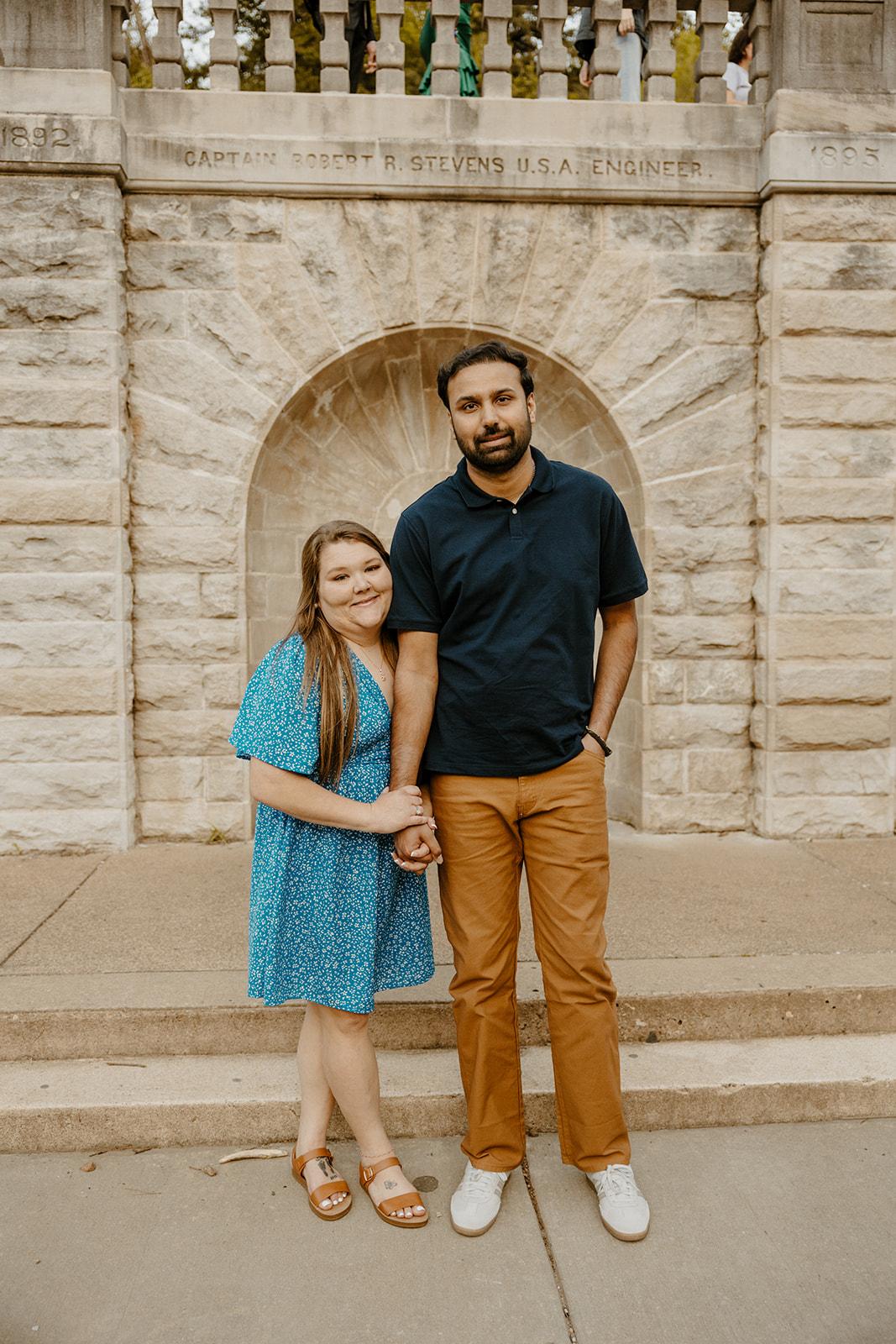A knockoff bottle of Yves Saint Laurent’s “Opium” perfume landed an Indian immigrant in handcuffs and into an Arkansas jail cell where he allegedly spent the next three days without food or rest, standing beside a pile of stinking human faeces.
Kapil Raghu, 28, was pulled over by Benton police officers one day in May this year, and what started as a routine traffic stop quickly escalated into a nightmare for him. The officers found “Opium” in his car’s centre console and despite Raghu pleading that it was perfume he had purchased at a gas station, he was charged with possession of a narcotic substance.
“What kind of policing is this?” Raghu, a food delivery driver, recalls thinking to himself at the time.
He tells The Independent his mind raced as he struggled to understand how “having a perfume can be illegal in any part of the world?”
“I told them nine times, it’s just perfume, it’s cologne. But they weren’t ready to listen,” he said.
Police took him to the Saline County detention centre where he faced three days of dehumanising behaviour, he alleges.
Raghu’s troubles were compounded by his immigration status. He was on an expired visa and had hired an attorney to file the necessary paperwork on time. According to his current legal team, that attorney failed to submit the documents before the deadline. As a result, when his arrest brought his visa status to light, Raghu was transferred to a US Immigration and Customs Enforcement detention facility in Louisiana.
His lawyer, Mike Laux, alleges that there was “an element of racial profiling that was afoot in Benton on that afternoon”.
“If he had been an immigrant from a country like Norway or Switzerland – somewhere associated with a Caucasian demographic,” he might not have faced the same charges,” he tells The Independent.
“Kapil should never have been pulled over in the first place,” he says. “So the problem really was rogue officers on that first line of the criminal justice system. They should have taken their blinders off, and done some basic police work – like unscrewing the cap or smelling the bottle.”
The Independent has reached out to the Benton Police Department for a statement.

By the time the results from the Arkansas State Crime Lab proved what Raghu had been saying all along – that the bottle contained nothing more than perfume – the damage was done. He had spent several days in jail, lost his job and been placed in immigration custody.
“When they took me to the Saline County jail, they put me in the holding cell. At first, they put me with 20 people, and it is a very tiny little room,” Raghu recalls his first jail tryst. “Then they moved me to another cell after taking my DNA and fingerprints and everything. We were eight people, and right next to me, there was human faeces. You are kind of dying with that smell. It’s not normal for any human being and that is why I kept standing all three nights. In between, I used to sit down for an hour or so.”
He alleges that despite his request for vegetarian food, he was given meals he couldn’t eat.
“They were feeding me like non-vegetarian food. I tried to convey my message to all of them that I am a vegetarian and can only eat vegetarian food. But they said, ‘It’s your privilege. Whatever you are getting, you have to consume it.’ So I kept passing on my food plates to other people.”
After three harrowing nights in the Saline County jail, he was taken to an ICE facility in Louisiana, the Winn Correctional Center.
He describes it as a terrifying experience. “I was very much scared and fearful because when you hear about the Louisiana detention camp, it is not a good camp compared to others,” he tells The Independent.
“They put all kinds of chains and shackles,” he adds. “I was thinking like I was trying to do everything the right way, legally came here, legally married.”
He remembers thinking: “I haven’t done anything bad to the community, and I am not even a threat to society. Why is it happening with me?”

Raghu and his wife, Ashley Mays, say they paid the retainer fee to his last immigration lawyer but never received a refund even though he failed to submit the paperwork on time.
Raghu arrived in the US on a B-2 tourist visa in May 2024 which expired later that year. He initially came to meet Mays – they had been dating online and offline since 2022. Mays had been to Winnipeg, Canada, where Raghu was an international student, as well as to his hometown in northern India’s Chandigarh.
“My visa was to expire in November, but the attorney didn’t file the paperwork on time,” he says.
Raghu, however, stayed back in the US to pursue his relationship with Mays. They married in April this year.
Before his detention, Raghu was leading a regular life: working jobs and being a doting stepfather to Mays’ daughter.
Raghu was finally granted bond and released from ICE custody in early June – shortly after laboratory tests confirmed that the “Opium” bottle contained nothing more than perfume.
His legal options have narrowed since his detention. In the past, he would have been able to apply for immigration relief and a work permit simultaneously. Now, because Raghu is in active deportation proceedings, he must wait until his family-based visa is approved – a process that could take years.
The uncertainty has weighed heavily on the couple. Since Raghu cannot work legally, his wife has taken up three jobs to sustain the family.
Mays has since set up a GoFundMe page for donations to help the family through.
“This has been one of the most painful experiences of our lives. He was eventually released on bond, but now he cannot legally work for the next four years while his case moves through the court system. That means our family is struggling to stay afloat,” she says on the page.
“He spent weeks behind bars, away from his family, stripped of his dignity, and treated like a criminal when his only ‘crime’ was overstaying a visa while we worked on his case.”
Laux, a civil rights lawyer, says: “The real issue starts with the Benton Police Department, their recklessness set into motion a series of events that led to the detention out of state.”
Earlier this month, Raghu appealed to ICE, in writing, to use its “prosecutorial discretion” to dismiss the “punitive proceedings” and restore his visa status “so that he can work and earn money for his family”.
The Independent has reached out to the Department of Homeland Security for comment regarding Raghu’s case.

.jpeg)























.jpeg)














 English (US) ·
English (US) ·